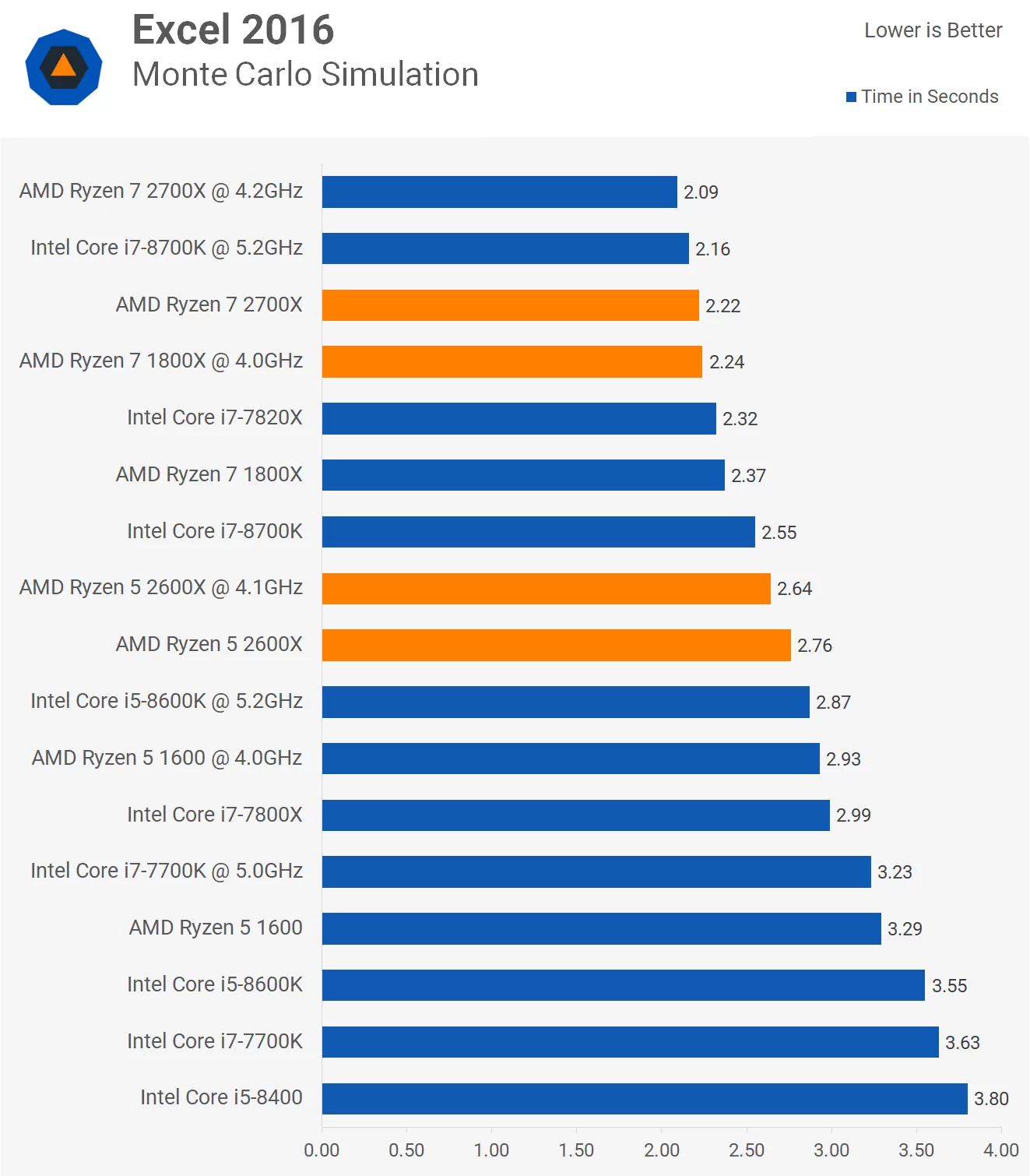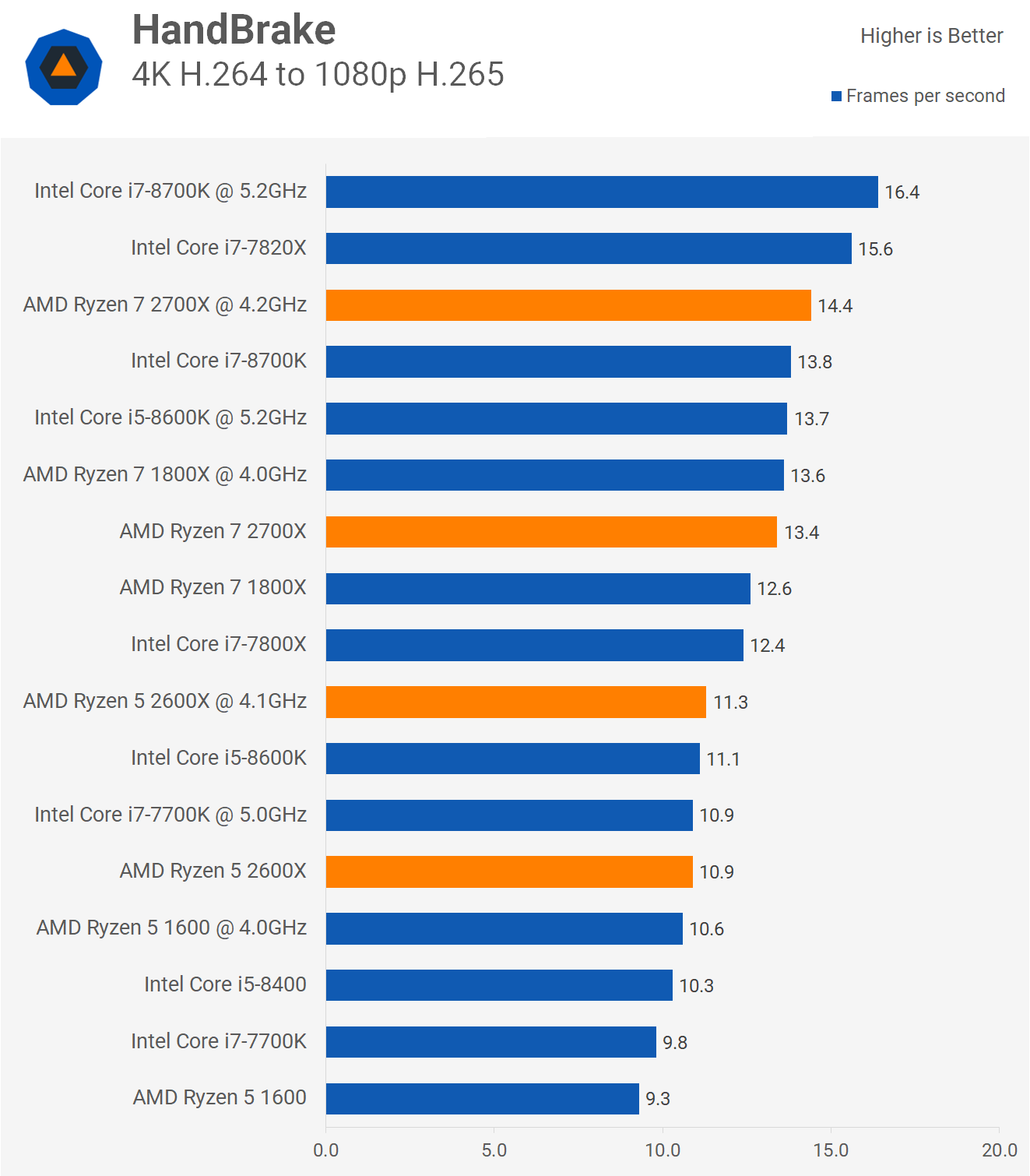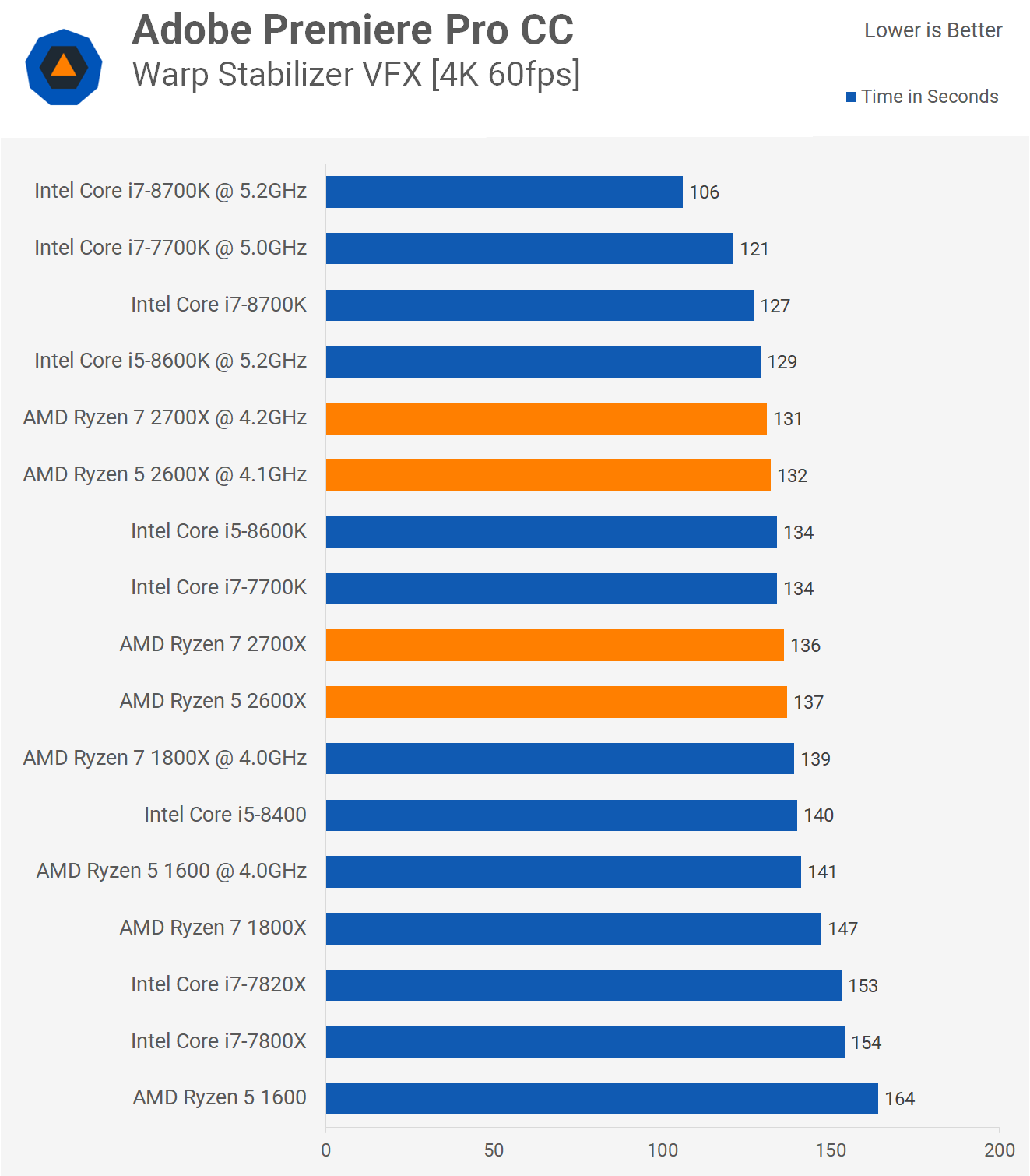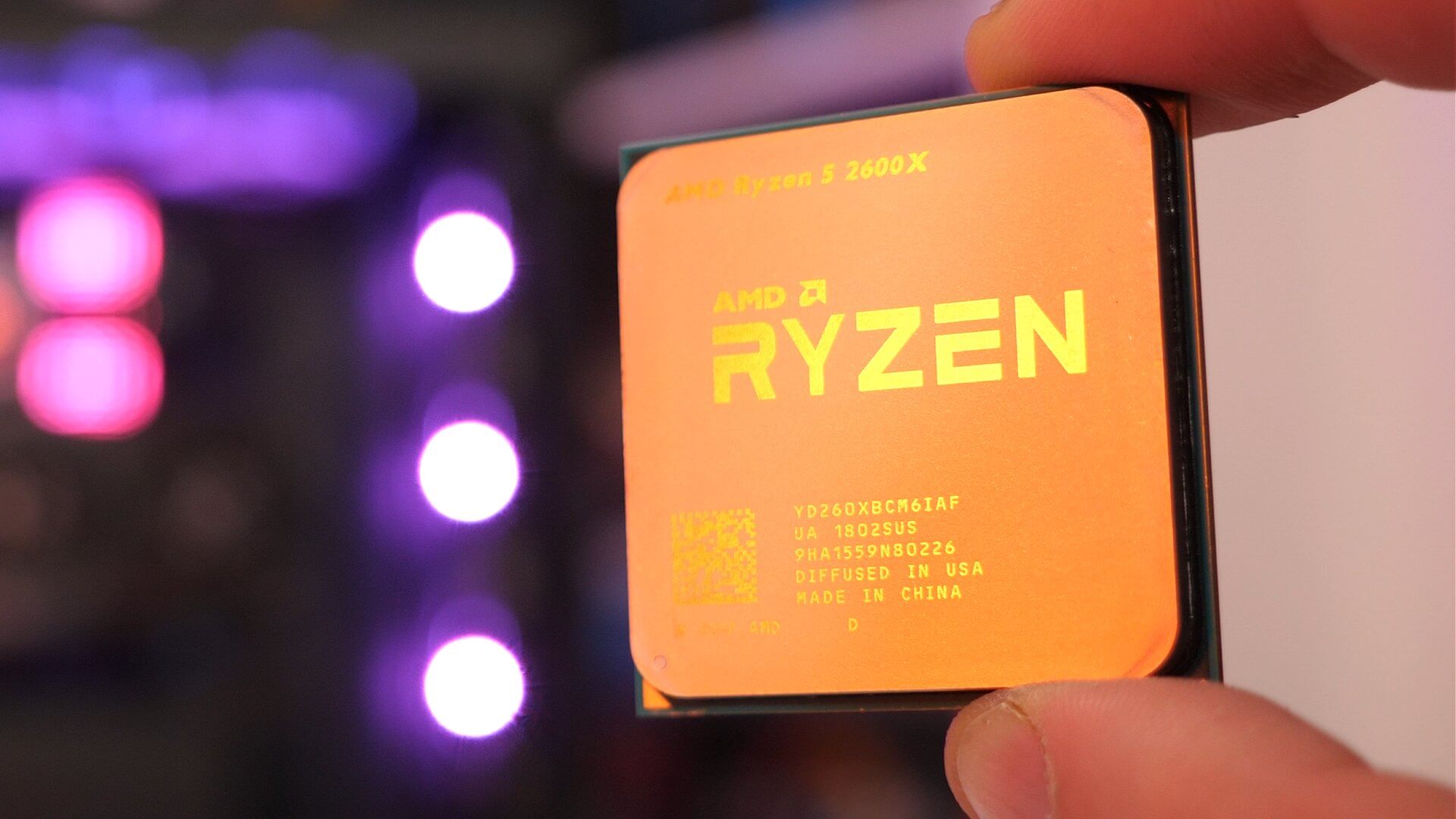Application Performance: Excel, Handbrake, Blender, Adobe Premiere
For those of you who love Excel, you'll be happy to hear that the new Ryzen CPUs will let you crunch data faster than ever, without breaking the bank. The 2700X took just 2.2 seconds to complete the workload while the 2600X took 2.7 seconds.

Overclocked, those times fell and the 2700X was able to remain ahead of the 8700K, if only just. Again, the 2600X ran a boring race, it was well ahead of the overclocked 8600K but well behind the overclocked 1800X.

As expected, SMT is still significantly more efficient for decompression work opposed to compression. This means while the 2700X was 12% faster than the 7820X when extracting files, it was 17% slower when archiving them. It's a similar story when comparing the 2600X and 7800X.
Overclocked the 2600X is slightly faster but again the gains are hardly worth the effort. The 2700X is more impressive as it enjoyed a 7% performance bump though it was only 5% faster than the overclocked 1800X.

The 2700X is slightly slower than the Core i7-8700K in our HandBrake benchmark and quite a bit slower than the 7820X. Meanwhile, the 2600X matched the 8600K and beat the 8400, placing it firmly in Coffee Lake Core i5 territory.
When overclocked, the 2700X still trails the 8700K by a reasonable margin though it was able to beat the 8600K. Then we see that overclocking the 2600X was enough to see it just outpace the 7700K at 5GHz, so that's a pretty impressive result.

The Corona render time for the 2700X was just a few seconds longer than the Core i7-7820X which is a solid result for AMD. The 2600X managed to edge out the 7800X, making for an even better result. The 1800X already had the 8700K beat in this benchmark so the 2700X really just makes sure of it.
Once overclocked, the 8700K is able to match the overclocked 1800X and this placed both on par with the stock 2700X. However, overclocking the 2700X reduced the render time by 10%, down to just 108 seconds, though the 2600X was only able to improve on its time by a 2% margin once overclocked.

Moving on to the Blender render test and here the 2700X was just 5% faster than the 1800X while the 2600X beat the 1600 by a 15% margin. This made the second-gen Ryzen parts slightly slower than the Skylake-X chips featuring the same amount of cores.
Overclocked, we again squeezed only slightly more performance out of the second-gen Ryzen CPUs. The render time for the 2700X was reduced by 7% and 5% for the 2600X.

V-Ray Benchmark is another free stand-alone application to help you test how fast your hardware renders and we're of course focused on the CPU results. Here we can see the 2700X basically matching the 7820X while the 2600X was on par with the 7800X, making the second-gen Ryzen series rather competitive with Skylake-X.
Overclocking the 8700K to 5.2GHz can't catch the overclocked 2700X, and in fact it only manages to match the stock 2700X. Meanwhile, the 2600X was only a fraction faster with its frequency boosted. I'm very keen to overclock the 7820X and 7800X and revisit these tests again.

Wrapping up the application testing, we have Premiere Pro CC and first up we're going to check out encoding performance. Here the 2700X is only able to reduce the export time of the 1800X by a 4% margin and this meant it was still 9% slower than the 7820X. The 2600X does better against the 7800X but was still a little slower.
Overclocked, we see good gains from the second-gen Ryzen parts but again I'll have to revisit these tests once I've had time to overclock the Skylake-X CPUs.

Where Ryzen has struggled in the past is lightly threaded workloads. Encoding a video generally sees all cores well utilized but most editing tasks don't use all available CPU resources. The higher clock speeds of the second-gen Ryzen CPUs really help and here the 2700X was able to reduce the workload time by 7% from the 1800X. As you can see, the 2700X and 2600X delivered pretty much the same result.
Overclocked we still see a decent performance uplift but again the 2700X and 2600X deliver similar results. You can't help but notice how much faster the 8700K is for these sorts of workloads. Compared to the 2700X for instance, the 8700K reduced the competition time by 19%. Even at 5GHz you can still expect it to be around 15% faster.
